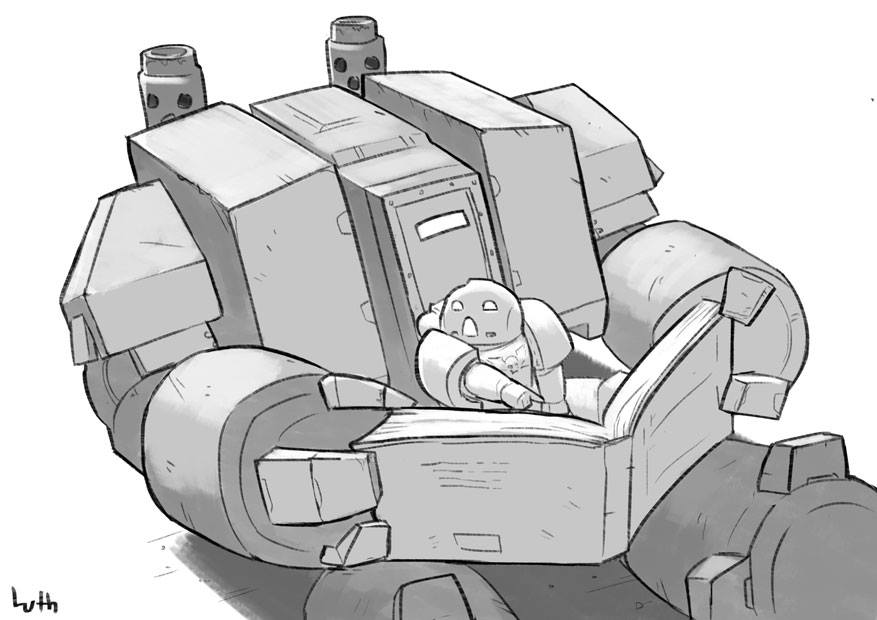
Welcome, 40K fans, to a series of articles I am writing about some of the deeper aspects of Warhammer 40,000. These articles are a thought exercise, and by writing them I hope to improve my thinking about 40K and its fiction (and maybe about much more). Topics in this series will be wide-ranging and will not shy away from moral or philosophical issues that some may consider sensitive or even controversial. I would rather risk the conversation, so while you or I may not agree, I look forward to hearing why. Consider yourself warned for lore spoilers as well. Also, check the Tactics Corner for more great articles on gaming in 40K!
But That’s Not ‘Real’ Literature
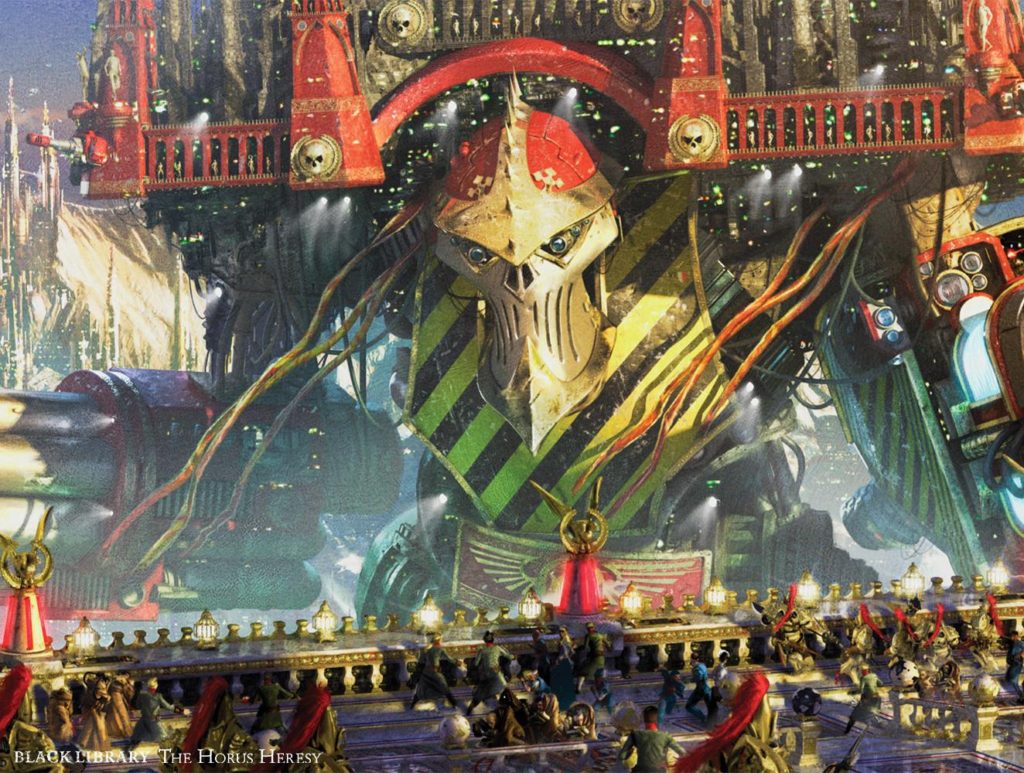
I’ve been through upper-level literary courses, and have written my fair share of essays. While I have the deepest respect for the classics, sometimes it was hard to grind my way through them. There’s a lot to learn about writing by going through the different stylistic ages of writing. Often I would be given a chance to write an essay about a “topic of [my] choice.” Sometimes the objective was to write through a particular lens, and the professor would let you choose what book you wanted to write the essay from. In all instances save one, when I expressed a desire to write something from either the 40K or 30K universes, I was rebutted with some variation of the following phrase:
“That’s not real literature”
-Most literature snobs
I’m not alone in this. Esteemed Professor Daniel Ruiz of TFG Radio fame once wrote an essay while in college that his professor said was well-written, but because he had picked the 40K universe as his subject matter he received a failing grade on the essay. Seems a bit counter-intuitive, doesn’t it? A well-written paper, but a failing grade only due to science-fiction subject matter. Are deep thoughts and valuable writing something that is purely restricted to a certain genre or time period? If so, how does that arbitrary time period or genre manage to include things like “Waiting for Godot” as things worth reading?
An Important Admission
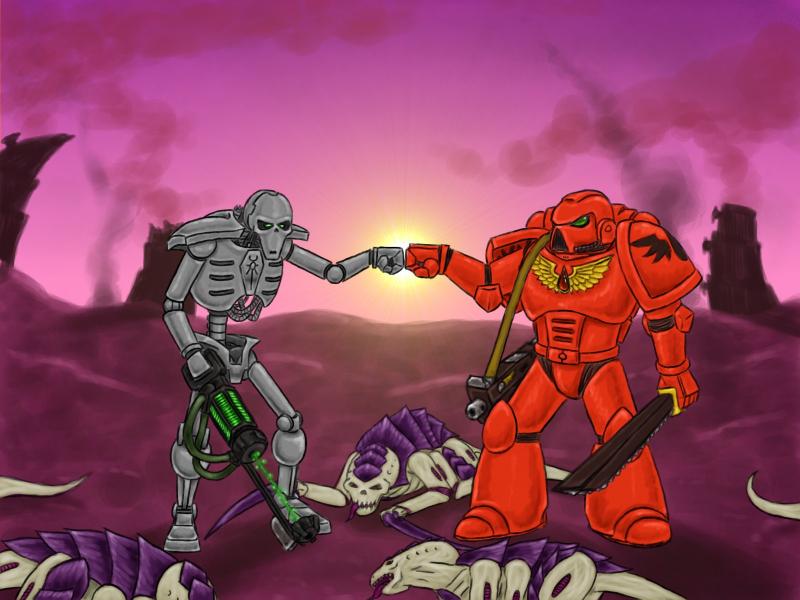
Like all things in the world, not all is created equal. Some things in the 40K universe are clearly there to justify something cool happening. Anyone who has listened to kids playing a schoolyard is familiar with the one-upping, the spontaneous merging of two incompatible abilities to create something undefeatably amazing, and so on. Astute readers also likely know without really knowing why that games that aren’t fun usually don’t continue for very long, as Jean Piaget noted in his behavioral studies of children at play.
The figurative depth of storytelling will be more apparent in some stories more than others, as well as more true for some authors more than others, but that is true of all writing. Some stories accomplish depth and complexity better than others, and some are more entertaining than others. I’m not going to be making a list of the best and worst or most and least meaningful of the stories in this setting, because I don’t think that’s useful for me to lay out for people. People can make those value judgments on their own. That’s not the point of these thought exercises. I will simply draw the line between Black Library fiction and the stories written in the vast majority of Codexes and supplements – which are written and operate more like a faux-historical account anyway – and will focus my efforts on the works of Black Library authors and creators as the basis for this argument for validity.
I am not saying that all 40K stories must be or are inherently deep and meaningful, I am simply pointing out meaning or significance where I see it, and am making the case that we shouldn’t dismiss the genre out of hand simply because of its connection to tabletop wargaming or the science-fiction genre of writing.
Dispensing With Dismissiveness
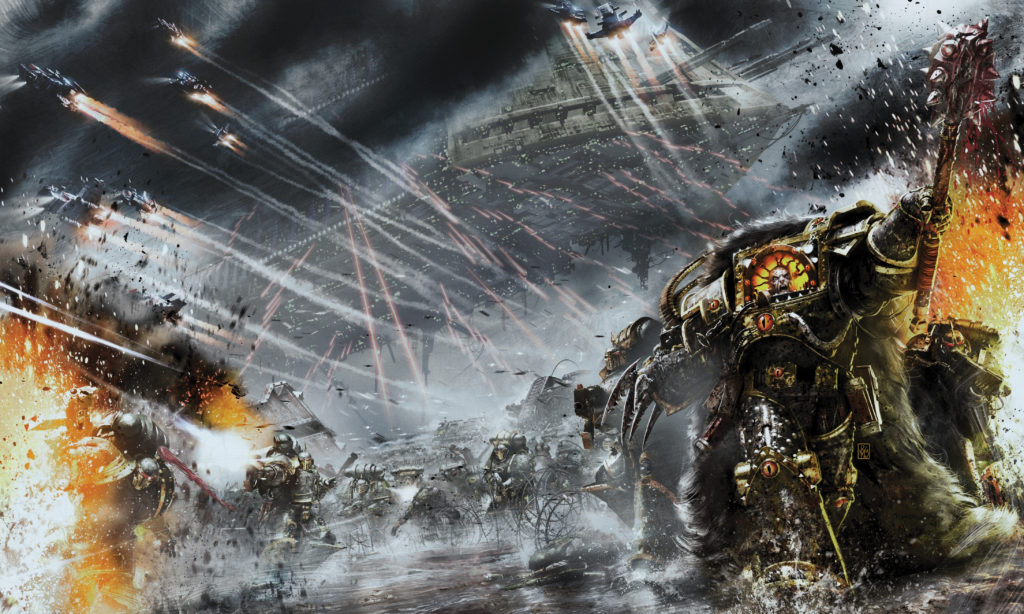
What is being discussed in these 40K philosophy essays is the case that Warhammer 40,000 stories offer more than mere entertainment for the sake of selling books and toys. We can all start with the baseline understanding that the stories are supplementary materials to a collectible tabletop miniatures game, but can we agree that they don’t just have to be? As readers, we can have enough respect for the authors of these novels to admit that not everything is purely a marketing message, and that the literary dimension in which these stories live can contain actually meaningful and useful information.
Stories are simulations that create and solve problems of varying complexity in an imaginary space. How we find solutions compelling in the simulation of story in the midst of wild action and scale-defying setpieces is a reflection on the depth and significance of the problem, and how relatable the conflict around the problem-solution relationship is.
For example, when we read the story of Garviel Loken we are not simply watching the chosen avatar of a male power fantasy muscle his way around the universe solving problems with his fists in order to sell toys. We are instead watching the descent of a naive person from a place of surety and security into the heart of betrayal (the lowest circle of hell) by those he loves and admires above all others. Then we watch how the horror of his own actions post-betrayal send him into a self-destructive spiral. Loken’s descent into madness as the “Beast ” in the ruins of Istvaan III isn’t just entertainment driven by a cool space warrior-guy slicing demon-zombies with a chainsaw sword, it is also a figurative exploration of PTSD. Loken’s journey is a metaphoric road to recovery through mental illness. We don’t care about how well Loken can swing his space weapons around as much as we care how he stands tall in the face of horror, deception, and betrayal and says “no” to the easy path in the face of those he once loved and admired above all others, even though his heart desires a return to naivete. That’s a relatable story. It’s a human story on a transhuman scale. The figurative realms in which these stories exist are just as valid playgrounds for psychological simulation and problem solving as any other. Loken’s journey is also my journey, because as a person dealing with PTSD I can slip into Loken’s character and embrace the tragedy with the triumph. That meaning is real, relevant, and is deeper than some classic literature and prose about bored men hanging themselves to get an erection.
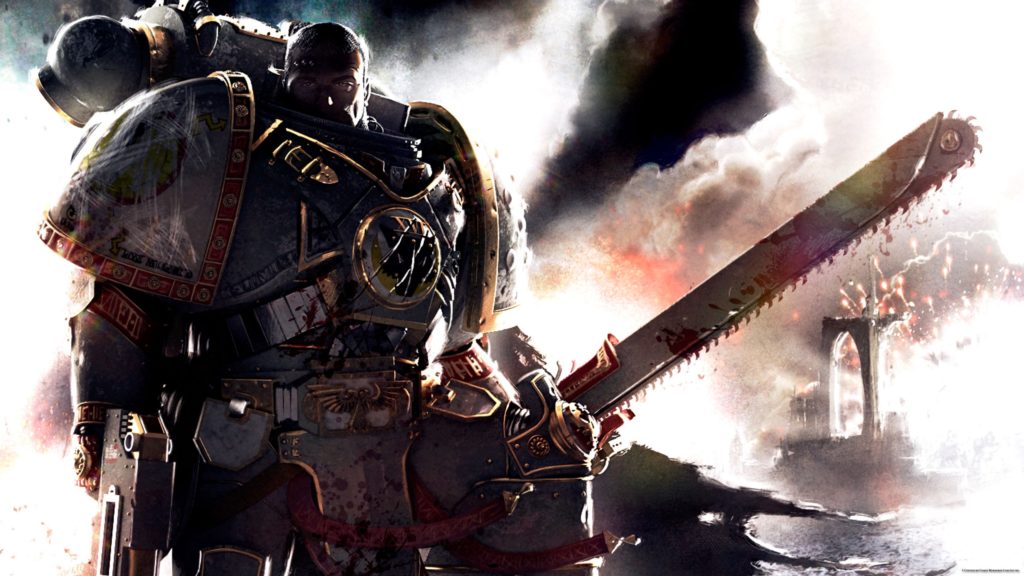
In Conclusion
So yes, we can admit that these stories at some level exist to sell toys, but they wouldn’t sell toys well if all there was to a narrative is a simple series of imaginary catalogs of cool stuff on GW’s website. So, while we are admitting that, let us also agree not to be dismissive enough to just throw the “bolter porn” filter on top of it all. If it all were so trite, then the stories wouldn’t matter to readers, they wouldn’t sell, and they’d cease being made.
An Ongoing Conversation
If you found this interesting, please check out my page Captain Morgan’s Librarius. This is the space where I test these ideas in their first drafts, and also talk about all the other parts of the hobby that I enjoy from painting, community, gaming, and all the rest. It’s also the best place to converse with me about this and many other topics in 40K. Likes and shares are appreciated. I hope you enjoyed this week’s read, and I’ll see you again next time!
And remember, Frontline Gaming sells gaming products at a discount, every day in their webcart!

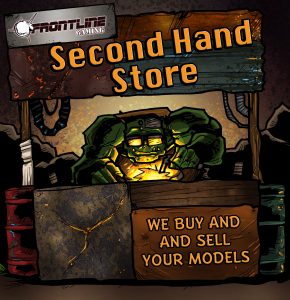

I’ve been enjoying these more intellectual articles, Chris, keep ’em comin’!
Thank you for continuing this series, and I look forward to more!
Also, pfft, what do English professors know? Somebody probably once told James Joyce that string-of-consciousness writing wasn’t “real writing”, you know? (note: I’ve never read Ulysses, I just read some of a book written that way and dropped it because oh my god is that stuff hard to read)
What matters is what you get out of it. Should someone discover themselves and choose a path of noble and honourable cause out of reading a Sunday Funny comic, that comic will have more meaning and literary importance to them than the entire collection of Sir Arthur Conan Doyle. The fact that so many people read 40k is proof enough that it’s a setting worth studying – something within it must speak to us, and exploring that is worth while.
Very well written.
I’d like to take this time to point out that I have a very dear friend who has read a massive amount of the Black Library novels (mostly Horus Heresy and Space Wolves stuff) and yet doesn’t play any of the games himself.
My favorite professor in college once said “the Harry Potter books are great…they’re fun stories and they’ve done wonders for getting kids to read. But they don’t say anything.”
A quote I’ve often returned to and mulled over with many things, 40k firmly among them.
Thank you for this fascinating deep dive into the ontological and narrative questions raised by Warhammer 40K fiction. Your exploration of what counts as ‘real literature’ within a licensed universe—that is both a game setting and a body of myth—brings an unexpected and rich philosophical lens to a hobby space. The way you identify how the text/game can function as both aesthetic experience and living community practice encourages readers to reflect not only on what we read, but how we engage with worlds we help build.
I especially appreciated how you pointed out that the act of playing, painting, and debating lore alongside reading novels means the boundary between fiction and ‘fandom lived out’ is porous and meaningful. This piece makes a strong case that such narratives are more than escapism—they can be sites of identity, meaning-making, and even communal values. Well done